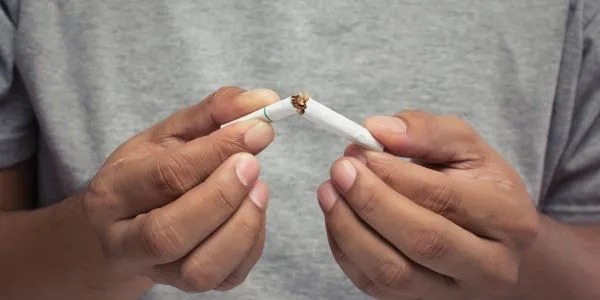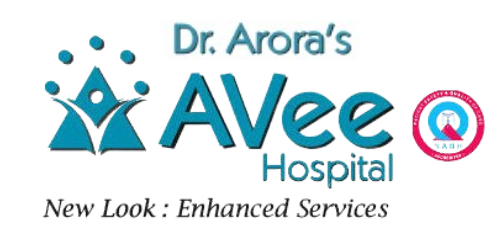How Your Body Reacts Right After You Light Up
The moment you light a cigarette, your body begins to respond. Within seconds of your first puff, harmful chemicals enter your bloodstream and begin circulating throughout your body. These immediate effects of smoking might seem minor, but they signal the beginning of potentially serious health problems.

Cigarette smoke raises heart rate and blood pressure, reduces oxygen delivery, and leads to shortness of breath during physical activity.
The respiratory system shows immediate reactions too. The cilia—tiny hair-like structures that help clean your lungs—become paralyzed temporarily. This allows toxins to accumulate in your airways. Many smokers develop a persistent cough as the body attempts to clear these irritants.
Your sense of taste and smell also diminish shortly after smoking. The chemicals in cigarette smoke damage taste buds and olfactory nerves, making food less enjoyable. This sensory dulling is often one of the first improvements ex-smokers notice when they quit.
Respiratory System: How Smoking Damages Your Lungs
The respiratory system bears the brunt of smoking’s effects on body functions. With each inhalation, over 7,000 chemicals enter your lungs, many of which are known carcinogens. The smoking effects on body tissues begin immediately and worsen over time.
Chronic Obstructive Pulmonary Disease (COPD)
COPD, including emphysema and chronic bronchitis, is mostly caused by smoking. It damages airways and air sacs, making breathing difficult.
COPD symptoms develop gradually and include:
- Persistent cough with mucus
- Wheezing
- Shortness of breath, especially during physical activities
- Chest tightness
- Frequent respiratory infections
Once COPD develops, the damage is irreversible. However, quitting smoking can slow its progression significantly.
Smoking and Asthma: A Dangerous Combination
For individuals with asthma, smoking is particularly harmful. Cigarette smoke is a powerful asthma trigger that can cause severe attacks and make the condition harder to control. Research shows that smoking and asthma form a dangerous combination that can lead to more severe symptoms and poorer treatment outcomes.
If you have asthma and smoke, consulting with an asthma specialist doctor is crucial for proper management. At AVEE Hospital, our asthma specialist offers personalized care for asthma and smoking cessation. Our specialists understand the complex relationship between smoking and respiratory conditions, offering advanced treatments to improve lung function and quality of life.
Lung Cancer Risk
Smoking raises lung cancer risk up to 30 times.
Early symptoms of lung cancer can include:
- Persistent cough that worsens over time
- Coughing up blood
- Chest pain that worsens with deep breathing
- Hoarseness
- Unexplained weight loss
- Recurrent respiratory infections
AVEE HOSPITAL is recognized as the best cancer hospital in Vaishali Ghaziabad for comprehensive oncology care. Our top oncologist in Ghaziabad specializes in treating smoking-related cancers with the latest therapeutic approaches. Early detection significantly improves treatment outcomes, so regular check-ups are essential for current and former smokers.
Cardiovascular System: Smoking’s Impact on Your Heart and Blood Vessels
The dangers of smoking extend well beyond the respiratory system. Your cardiovascular system—comprising your heart and blood vessels—suffers significant damage from tobacco use.
Heart Disease
Smoking damages your heart and blood vessels in multiple ways:
- Atherosclerosis: Tobacco smoke damages artery linings, narrowing them and raising clot risk.
- Blood Pressure: Nicotine causes an immediate spike in blood pressure. Over time, chronic high blood pressure damages arterial walls and forces the heart to work harder.
- Heart Attack Risk: Smokers are 2–4 times more likely to get heart disease, with risk rising by the number of cigarettes smoked.
- Reduced Oxygen: Carbon monoxide from cigarette smoke reduces oxygen in the blood, forcing the heart to pump harder to deliver adequate oxygen to tissues.
Stroke Risk
Smoking doubles stroke risk and increases brain bleed risk, especially with oral contraceptives.
One year after quitting, heart disease risk halves; in 5–15 years, stroke risk matches that of non-smokers.
Cancer Development: Beyond the Lungs
Smoking increases the risk of 12+ cancers; awareness aids prevention and early detection.
Types of Smoking-Related Cancers
- Oral and Throat Cancers: Smoking exposes the mouth, throat, and esophagus to carcinogens, significantly increasing cancer risk in these areas.
- Pancreatic Cancer: Smoking doubles the risk of this deadly cancer.
- Bladder Cancer: Smoking increases bladder cancer risk 3–4 times as carcinogens in urine damage the bladder lining.
- Kidney Cancer: Smoking increases kidney cancer risk by about 50%.
- Stomach and Colorectal Cancers: Smoking is associated with higher rates of these digestive system cancers.
- Liver Cancer: Smokers have an increased risk of liver cancer, which is further amplified if combined with alcohol consumption.
- Cervical Cancer: Smoking increases the risk in women..
- Acute Myeloid Leukemia: This blood and bone marrow cancer occurs more frequently in smokers.
Facing smoking-related cancer? Consult the top oncologist at AVEE Hospital, Ghaziabad, for expert care and advanced treatment.
As the top cancer hospital in Vaishali, Ghaziabad, we provide advanced diagnostics and personalized treatment through a multidisciplinary approach.
Immune System Compromise: How Smoking Weakens Your Defenses
The smoking effects on body immunity are profound yet often overlooked. Your immune system—your body’s defense against infections and diseases—becomes significantly compromised when you smoke.
Weakened Immune Response
Cigarette smoke alters the function of immune cells, including:
- T cells: These cells coordinate immune responses and are directly impaired by cigarette smoke.
- B cells: Responsible for antibody production, these cells show reduced function in smokers.
- Macrophages: These cells that engulf and destroy pathogens become less effective.
- Natural killer cells: These cells that target virus-infected and cancerous cells show reduced activity.
These changes result in:
- Increased infection risk: Smokers experience more frequent and severe respiratory infections, including pneumonia, influenza, and tuberculosis.
- Slower healing: Wounds take longer to heal in smokers due to reduced blood flow and impaired immune function.
- Autoimmune implications: Some research suggests smoking may trigger or worsen autoimmune conditions by disrupting normal immune regulation.
- Reduced vaccine effectiveness: Studies show that smokers may have a weaker response to certain vaccines.
For smokers with chronic conditions like asthma, this immune compromise is particularly problematic. Consulting with an asthma specialist doctor is essential for developing strategies to protect lung health. AVEE HOSPITAL’s asthma specialist doctor can help develop a personalized treatment plan for smoking-related breathing issues.
Other Bodily Effects: The Widespread Impact of Smoking
How does tobacco affect the body beyond the major systems? The answer is: in almost every way imaginable. Smoking’s reach extends to virtually every organ and system.
Skin and Appearance
Smoking accelerates skin aging through several mechanisms:
- Reduced blood flow to the skin
- Smoking damages collagen and elastin, leading to skin aging
- Depletion of vitamin A
- Repetitive facial expressions while smoking
These effects lead to premature wrinkles, particularly around the mouth and eyes, a grayish skin tone, and slower wound healing. Smokers often appear 10-20 years older than their actual age.
Reproductive Health
For women, smoking can:
- Reduce fertility
- Increase risk of ectopic pregnancy
- Cause earlier menopause
- Lead to menstrual irregularities
- Increase risk of pregnancy complications
For men, smoking can:
- Reduce sperm count and quality
- Increase risk of erectile dysfunction
- Damage sperm DNA, potentially affecting offspring
Digestive System
Smoking affects your digestive system by:
- Increasing acid reflux and heartburn
- Raising the risk of peptic ulcers
- Increasing the risk of Crohn’s disease
- Impairing the liver’s ability to process medications and toxins
Bone Health
Smoking lowers bone density and raises the risk of:
- Osteoporosis
- Fractures
- Slower healing of bone injuries
- Tooth loss and gum disease are common smoking-related dental issues.
The 10 harmful effects of cigarette smoking extend to virtually every part of your body, from visible external changes to internal damage that may not be apparent until serious disease develops.
Benefits of Quitting: Your Body’s Remarkable Recovery
Understanding the smoking cessation effects on body systems can provide powerful motivation to quit. The body begins to heal remarkably quickly once smoking stops:
Within 20 minutes:
- Blood pressure and heart rate return to normal
Within 12 hours:
- Blood carbon monoxide levels return to normal.
- Oxygen levels increase
Within 2-12 weeks:
- Circulation improves
- Lung function increases
- Walking becomes easier
Within 1-9 months:
- Coughing and shortness of breath decrease
- Cilia in the lungs regrow, increasing the ability to clear mucus and reduce infection risk
Within 1 year:
- Risk of coronary heart disease is cut in half
Within 5-15 years:
- Stroke risk drops to non-smoker levels.
- Risk of mouth, throat, and esophageal cancers is halved
Within 10 years:
· Lung cancer risk halves after quitting smoking.
- Risk of bladder, kidney, and pancreatic cancers decreases
Within 15-20 years:
- Heart disease risk drops to non-smoker levels after quitting.
- Overall mortality risk approaches that of someone who has never smoked
The quit smoking effects on body systems demonstrate the remarkable resilience of the human body when given the chance to heal.
How Expert Care Can Help with Smoking-Related Conditions
At AVEE Hospital, we tackle smoking addiction and related health issues with a comprehensive approach to both physical and psychological care.
Specialized Care for Respiratory Conditions
If you’re experiencing breathing difficulties due to smoking, schedule an appointment with our asthma specialist doctor today. Our respiratory specialists offer:
- Comprehensive lung function testing
- Personalized asthma management plans
- Advanced treatments for COPD
- Smoking cessation support
- Pulmonary rehabilitation programs
Cancer Treatment and Prevention
As the best cancer hospital in Vaishali Ghaziabad, we offer:
- Advanced diagnostic imaging
- Minimally invasive biopsy techniques
- Cutting-edge treatment options
- Supportive care services
- Cancer screening programs for high-risk individuals
Our top oncologist in Ghaziabad provides personalized cancer care with a skilled team, improving outcomes for smoking-related cases.
Smoking Cessation Programs
Quitting smoking is vital for your health. AVEE Hospital offers complete cessation programs with:
- Medical evaluation and personalized quit plans
- Medication options to manage withdrawal symptoms
- Behavioral counseling
- Support groups
- Follow-up care to prevent relapse
Cardiovascular Health Services
Our cardiology department provides:
- Comprehensive heart health assessments
- Advanced diagnostic testing
- Interventional procedures
- Cardiac rehabilitation
- Preventive cardiology services
Conclusion: Taking the First Step Toward Better Health
The effects of smoking extend far beyond the respiratory system, impacting nearly every organ in the body. From immediate changes in heart rate and blood pressure to long-term risks of cancer, heart disease, and respiratory conditions, smoking takes a tremendous toll on health.
Understanding what smoking does to your body is the first step toward making a change. Whether you’re a current smoker considering quitting, a former smoker concerned about health risks, or someone supporting a loved one, AVEE HOSPITAL is here to help.
Our team of specialists, including our asthma specialist doctor and top oncologist in Ghaziabad, provides comprehensive care for smoking-related conditions. As the best cancer hospital in Vaishali Ghaziabad, we offer advanced diagnostic and treatment options in a supportive environment.
Remember, it’s never too late to quit smoking. The body begins to heal within minutes of the last cigarette, and many of the risks associated with smoking decrease significantly over time. Take the first step toward better health by contacting AVEE HOSPITAL today to schedule a consultation with our expert medical team.
For appointments or more information, contact AVEE HOSPITAL in Vaishali, Ghaziabad. Your journey to better health starts here.

